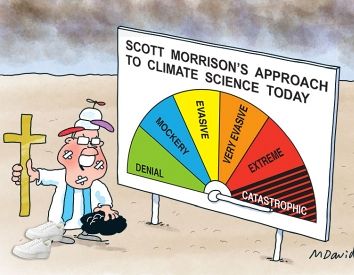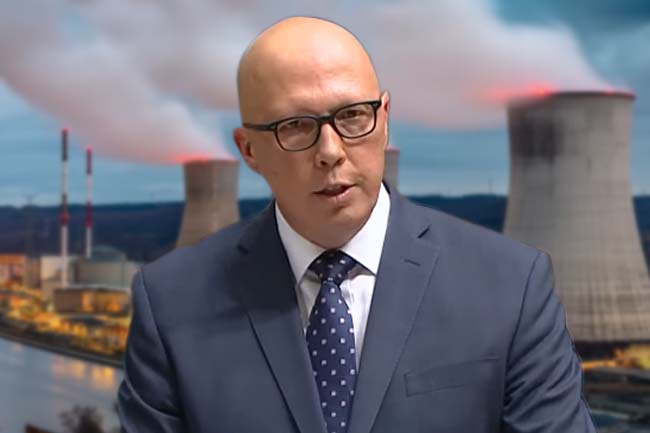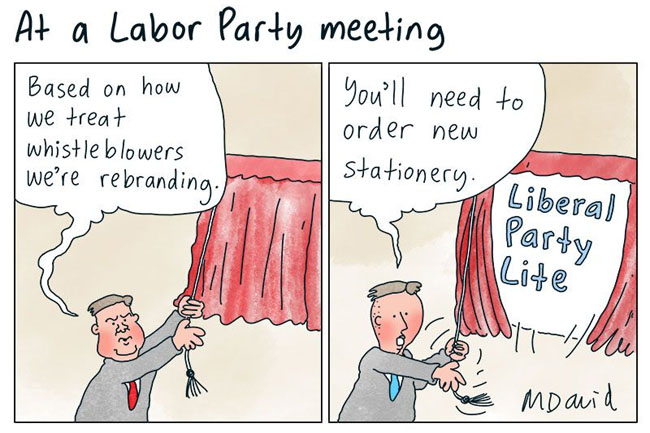As ordinary Australians suffer from the disaster of climate change, mining companies are recording massive profits and often paying little or nothing in tax, writes John Quiggin.
GLOBAL HEATING has been an issue of concern for around 30 years now, at least since the Earth Summit held in Rio 1992. For most of the time, the issue has been framed in terms of a conflict between our current economic welfare and our obligations to future generations, a framing that remains influential.
For economists, this led into lengthy, confusing and often confused debates about "discounting". How does a dollar’s worth of spending to reduce emissions today compare to a dollar’s worth of damage prevented in 2100 (whatever that valuation might mean)? Arguments for a low discount rate rested on the idea that we should be as concerned about future generations as we are about ourselves.
Thinking about global heating in terms of future generations has always been problematic. My grandchildren, in school today, are not part of a "future generation". But they can reasonably hope to be alive in the year 2100, by which time the heating process may well be largely complete and the damage already done. For young people alive today, the damage caused by global heating has never been a matter of concern solely for future generations.
The events of the last decade or so have rendered most of these debates largely irrelevant. Australia and other countries have seen a string of increasingly severe climate disasters, including floods, fires, heatwaves and droughts.
At the same time, the science of climate attribution, which analyses the link between climatic events and global heating, has become increasingly sophisticated and firmly established. It can be stated with high confidence that the disasters we are experiencing would have been less severe and might not even have happened in the absence of global heating.
A report released by the Climate Council on Monday brings this point home. Among other disturbing findings, the report estimates a cost to Queensland of $7.7 billion from a single "unnatural disaster" — the social, financial and economic impacts of record-breaking rainfall and floods in February and March 2022. That loss exceeds the $7.3 billion in coal royalties received by the Queensland Government in 2021-22.
Queensland suffers the most economic damage from climatic disasters. Total losses from extreme weather since the 1970s were 'around three times those of Victoria and 50 per cent greater than New South Wales.'
These disasters are only going to get worse. Even if emissions stopped immediately, heating would continue until the climate reached a new equilibrium. If the goal of net-zero emissions by 2050 is achieved, heating will continue until the end of the century.
As the Climate Council observes, this implies a need for emergency services on a scale massively greater than was needed in the past. This includes more funding for emergency services, new research to understand looming climate risks and support for communities to rebuild or relocate in a way that reduces their vulnerability to worsening climate change.
This task is too big to be left to state governments. Scott Morrison's fatuous observation during the bushfire crisis that "I don’t hold a hose, mate" epitomised the outdated view that the Federal Government should defend us from foreign military adversaries but not from global threats to our well-being.
But even as ordinary Australians suffer from the disaster of climate change, mining companies are recording massive profits and often paying little or nothing in tax. The biggest beneficiaries of the recent upsurge in coal prices have been those companies which have sought short-term profits from coal rather than shifting to more sustainable operations.
The same companies and bodies they dominate – like the Minerals Council of Australia – are now gearing up for an attack on the very modest measures being considered by the Albanese Government to mitigate the impact of high energy prices.
We should recognise that these organisations are enemies of the Australian people and of the entire planet. The sooner they are out of business, the better it will be.
We can’t stop the unnatural disaster of global heating — but we can prevent the worst catastrophes that will follow if global emissions of greenhouse gases are not reduced to zero as quickly as possible.
John Quiggin is Professor of Economics at the University of Queensland. His latest book, 'Economics in Two Lessons: Why Markets Work So Well and Why They Can Fail So Badly', is out now from Princeton University Press. You can follow John on Twitter @JohnQuiggin.
Related Articles
- Australia's debt to the world greater given our 'real' carbon emissions
- Lessons Australia can learn from UN's 'greenwashing' report
- 'Cancel the debt': Climate protests disrupt World Bank summit
- Put a price on pollution or we'll keep cooking the planet
- Shocking bail conditions for climate activists
 This work is licensed under a Creative Commons Attribution-NonCommercial-NoDerivs 3.0 Australia License
This work is licensed under a Creative Commons Attribution-NonCommercial-NoDerivs 3.0 Australia License
Support independent journalism Subscribe to IA.














